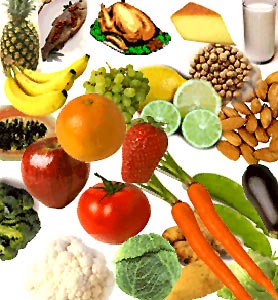
Do You know someone who suffers from high blood pressure? Maybe You? Then this is good news!
Are you aware that there are simple and inexpensive ways to control blood pressure with food and supplements you already have in your kitchen?
Intelligent health conscious people like You can naturally understand these strategies to help maintain lower blood pressure levels.
Because when you understand and follow through with these steps, you will feel more energy and enjoy the benefits of lower blood pressure.
In my 10 years of studying nutrition and over 5 years of helping others solve their health problems, I have found that the experts agree that these steps are some of the most effective in lowering blood pressure naturally.
1. CoQ10 supplements – CoEnzyme Q10 or CoQ10 For short is a powerful anti-oxidant which is in every cell in your body. Your body uses CoQ10 to derive Energy.
In a double-blind placebo controlled study published in The Journal of Human Hypertension, The group which took CoQ10 for just 8 weeks showed a significant reduction of blood pressure.
Also in a University of Texas study, people taking oral CoQ10 after just one month experienced significant lowering of blood pressure and 51% of participants were able to discontinue blood pressure medication.
As a side note, blood pressure medication prevents the body from not only manufacturing its own CoQ10, but also your body’s ability to absorb CoQ10. recommended dose: 100-200 mg gel caps each day to help lower blood pressure.
2. Vitamins, Herbs and Anti-oxidants
The following are Doctor recommended daily amounts.
Vitamin C - 1000 mg
Garlic - 2 cloves
Hawthorn berry - 500 mg
Omega 3 fatty acid fish oil Gel caps - 1000 mg
Vitamin b6 in a natural multivitamin
Magnesium - 500 mg
Astragalus root 500mg
3. Food Sources:
In a Greek study that examined the effects of the Mediterranean diet on 20,000 people proved that olive Oil, Fruits and Vegetables were significantly associated with lower systolic and diastolic blood pressure.
Celery - 4 sticks a day, relaxes the smooth muscles in the blood vessels.
Fresh cold water fish which is high in Omega-3 fatty Acids.
Salt - let’s understand the real reason why salt is important to your blood pressure.
We’ve all heard that you need to cut down on sodium in your diet, although this is not bad advice, it misses the point. High sodium intake alone does not increase blood pressure, it is an excess of sodium to potassium ratio.
The ideal ratio is five times as much potassium as sodium in Your diet. You’ll get the best results by eating three servings A day of potassium rich foods such as:
Bananas – 1 large
Avocados – 1 cup
Beans – ½ cup
Squash – 1 cup
Tomatoes – ½ cup
Low levels of magnesium can also contribute to high Blood pressure, so here are some Magnesium rich foods:
Almonds – 1/3 cup
Tofu – ½ cup
Cashews – 1 cup
Raisin bran – 1/3 cup
And finally lets talk about what level of blood pressure is considered high. Right now the threshold pushed by mainstream medicine is 115/75 – 120/80 which WAS considered borderline LOW just 5 years ago.
This is because the standard for “high- blood pressure, just like the standard for cholesterol is repeatedly lowered to put more people on medication. Your individual risk factors and age play a big role in determining what is a good blood pressure level for YOU.
So don’t just accept a one size fits all number when it comes to your blood pressure. Ask questions and discuss your health with a nutritionally educated Doctor to find what is best for you.
So what about YOU? Are You going to let the silent killer Sneak up on you? Or are You going to take action that will make this highly unlikely?
When You safe-guard Yourself with these proven techniques which You can easily incorporate into your life, then You will reap the healthy benefits.
Used in combination these natural, safe and proven techniques work wonders to keep your blood pressure down and allow you to experience a higher level of health without the unwanted side effects.
So take action now and get started today to do one thing from each of the three points above. Each day incorporate the food and supplements listed and You are well on Your way to lower blood pressure. These are proven, safe and inexpensive steps so You can enjoy the benefits now.


